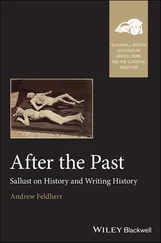A waitress in traditional Russian peasant dress, a nod to the prerevolutionary undertones of the menu before us, interrupted T ***to unveil his swordfish, a taste for which he had acquired, along with the affection for green tea, during an extended Asian stint, back in his days as a “journalist” reporting to the Central Committee’s foreign relations office. T ***, many whispered, was KGB in those Asian days. Some insisted that he still was. But T ***just laughed at all the talk and maintained that he was merely a journalist, a student of the Japanese language and culture, and, above all, a loyal, if less than devout, follower of the Party line.
As soon as the waitress took her leave, he continued.
“Sterlikov’s driving his Saab, or rather his driver-bodyguard is, in from the dacha when all of a sudden a cop speeds past, cuts in front of them, and forces them to pull over. The cops ask the driver for his license. Then they say they want to check the engine number. So the driver opens the hood. Just as he leans over the engine – pop. They shoot him in the back of the head. Poor Sterlikov starts to get out of the car to see what’s going on, and one of the cops shoots him. Six bullets in the chest. Died later in the hospital.”
T ***took a sip from his bone china teacup and watched my eyes contract. But I had heard such tales before. The Moscow tabloids were full of them. “Never open a door for anyone in uniform” was one of the first rules a landlord taught a foreign tenant. The hit men, we were told, had access to the proper uniforms and even genuine IDs. Cop cars? No problem. T ***was undeterred. It was not the end of the tale, he said. “The cops were hit men,” he said. “But they were also cops.”
Another sip, right pinkie raised, to let it sink in.
“How do I know all this? Sterlikov worked for one of our banks. A recent hire and not the best. But he brought a certain pedigree, and we owed a favor to a friend. The poor guy was killed by real policemen. We don’t know their names, but we know what happened.” The bank, he explained, had conducted its own investigation. The cops had been hired to kill. They were moonlighting.
T ***returned to his fish. As for Sterlikov, he checked out clean. No extravagant debts. Nothing certainly to get killed over. And he hadn’t been at the bank long enough to steal anything. He fell victim to a stupid blood feud. Banker for banker, that kind of thing.
“But the cops,” T ***said, wiping the edges of his red lips with an ironed napkin, “now isn’t that something?” He marveled at the accelerated evolution of the criminalization of the organs of law enforcement. He refolded the napkin and revealed a grin. Once we had left the restaurant, I watched T ***trundle off down the snowy boulevard and disappear into the noonday thicket of cars and passersby on Pushkin Square. He almost seemed pleased.
BEYOND LUST AND FEAR, Moscow breeds power. You cannot help feeling that you are trespassing in its path. Every effort is made to impress upon the populace its privileged proximity to the unlimited power of the state. This is not just state power as in other countries. This is not merely the pomp of officialdom, but the deliberate demonstration of the state’s power over the people, an ever-present slap in their face.
It is midmorning. You walk through the cold, dank underpass, lit by long fluorescent lamps. At one end stand two grandmothers, selling cigarettes, hand-knit caps, dried flowers. The underground walkway fills with the sounds of an accordion. A mournful Russian ballad. Every day the accordion player, a Moldovan refugee, is here busking. Every day he squeezes out the same song. It is a long underpass. When at last you emerge and climb the stairs up into the cold wind of the far side of the street, you suddenly hear it: the silence. Nothing announces the power like the silence.
Kutuzovsky Prospekt may well be the broadest street in Moscow. At its widest it has seven lanes in each direction. In its center the road is divided by a lane reserved for the political and financial elite, or at least any Russian sufficiently well moneyed or well connected to procure the coveted migalka , a little flashing blue light that, once affixed to a car roof, announces the right of the faceless passenger hidden behind the curtained, smoked windows to break any traffic rule or regulation. In the morning, as the city’s bankers and bureaucrats rush toward their offices, the road is filled with cars and heavy trucks trying to tack their way into the center. The roar of the traffic, with all fifteen lanes fully loaded, is deafening. Walking the sidewalks of Kutuzovsky, as I did nearly every morning, can be unpleasant.
Until the silence comes. It happens at least twice a day, usually in midmorning and just before the sun sets. You are walking down the sidewalk, and then, in a single moment, you realize something has changed, something is amiss. All you hear is the crunch of your boots on the hard snow. On the street, the slow-moving river of cars has not simply stopped; it has disappeared. (In minutes a road as wide as a highway is completely cleared.) The trolley buses have pulled over and stand along the edge of the prospekt . The citizens too, waiting at the bus stops, stand still. Everyone waits. Hundreds of poor souls, trapped in the stilled traffic, sit mute in their parked cars. The street has frozen into a photograph, and you are the only one moving through it.
For several minutes nothing stirs. Then suddenly a black Volga, an illuminated migalka fixed to its roof, speeds down the middle of the prospekt . Then another, and a third, a fourth. And then the chorus of sirens accompanying the flashing lights. A convoy of automobiles, a dozen in all, each duly impressing the motionless citizenry with its size, speed, and cleanliness. As men, women, and schoolchildren (and the secret policemen in plain clothes sprinkled among them) stand and watch, a squadron of BMW militsiya sedans sweeps past, followed by an extended black Mercedes limousine and a quartet of oversize Mercedes jeeps. As the convoy passes, the cars leave a ripple of turned faces on the sidewalks.
A visitor might imagine the world had stopped because of a dire emergency. But the Muscovites frozen in place along this vast slate gray avenue recognize the scene for what it is: their president, the leader of all Russia, making his way to work. More than twenty miles of roadway in the Russian capital are closed in this fashion every day. In a city already paralyzed by too much snow and too many cars. And still no one complains, ever. It is the essence of power, Moscow style. It is naglost . In general, naglost is an unseemly blend of arrogance, shamelessness, and rudeness. In this instance it is the contemptuous disdain of the rights of ordinary Russians.
IN THE COVETED neighborhood of Nikitskiye Vorota, nestled among small parks and large embassies and tucked behind the poplar-lined boulevard that circumscribes the city center stands a surprisingly modest apartment building where the new guard meets the old guard. No. 15 Leontievsky Pereulok, a squat seven-story building of beige brick and broad balconies, has an exterior that bears few distinguishing marks except for a row of Soviet-era plaques that honor a half dozen of its previous residents. Built in 1962 for Politburo members evicted from the Kremlin living quarters when Khrushchev tore them down to build his massive Palace of Congresses, the building housed Party overlords, titans of Soviet industry and arms, and even Dolores Ibárruri, the famed doyenne of the Spanish Communists. More recently, the chief of the International Monetary Fund mission in Moscow, a jovial bald economist with a hefty pinkie ring, lived here in the old flat of Andrei Gromyko, the long-serving Soviet foreign minister.
Читать дальше












